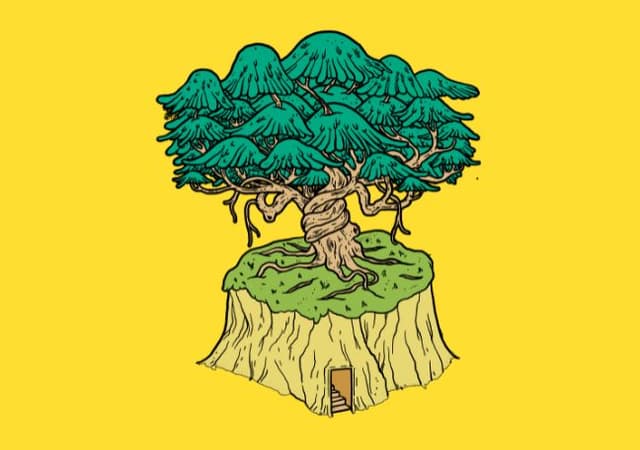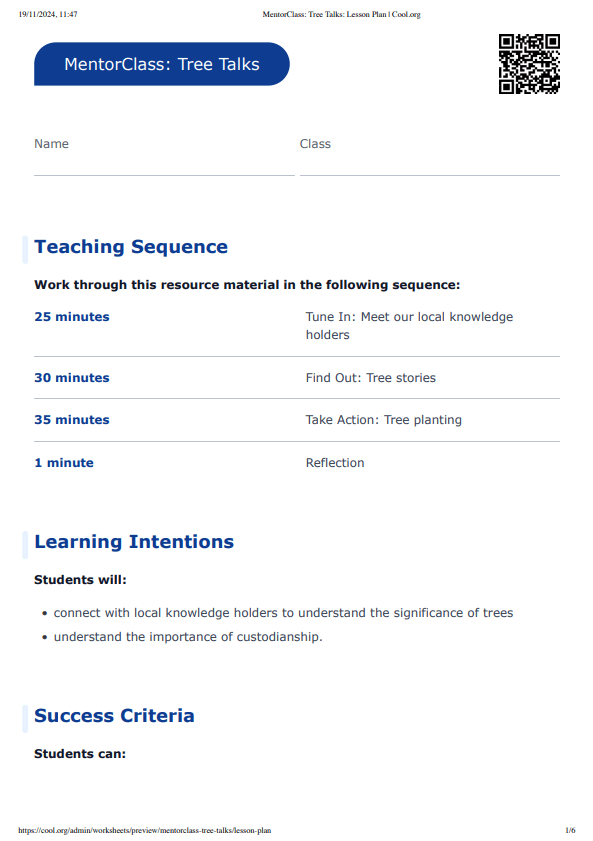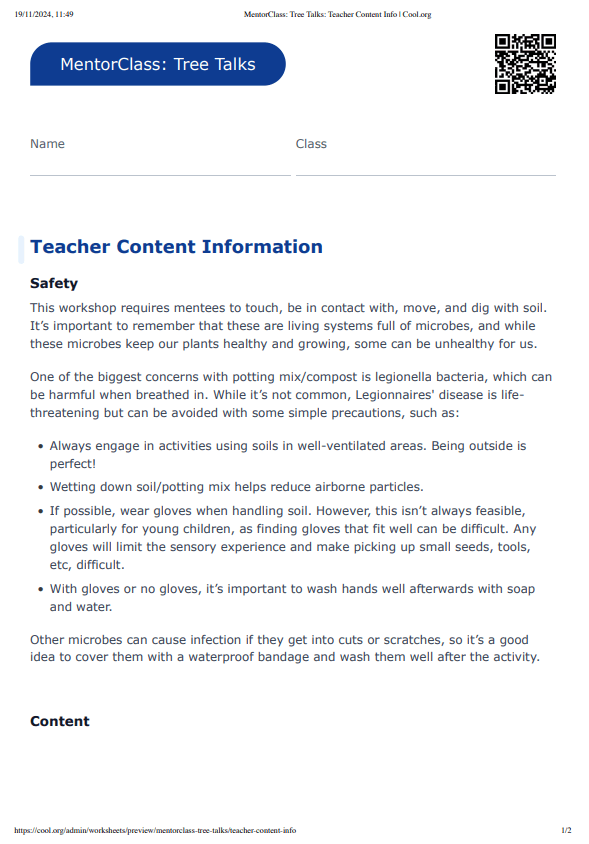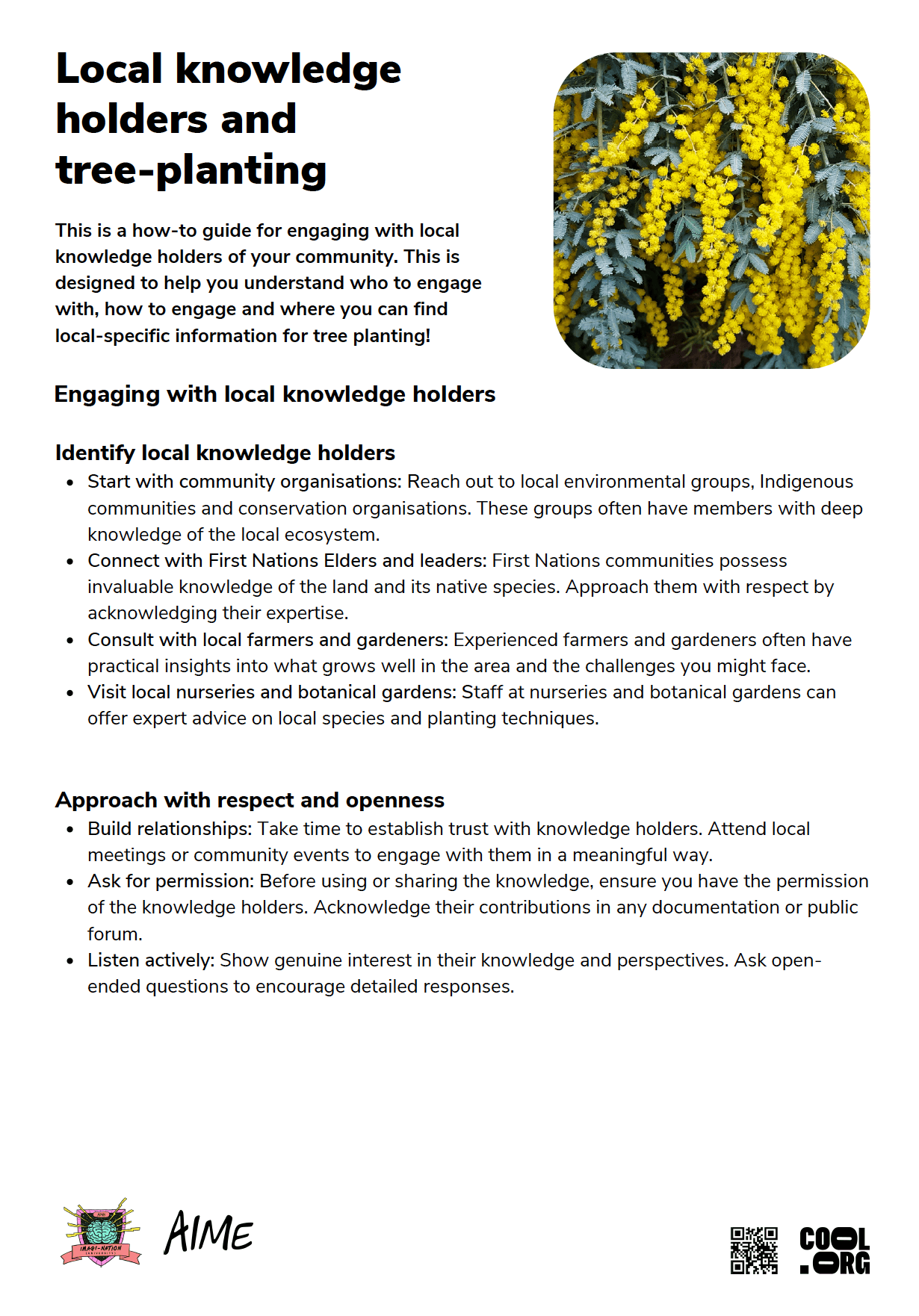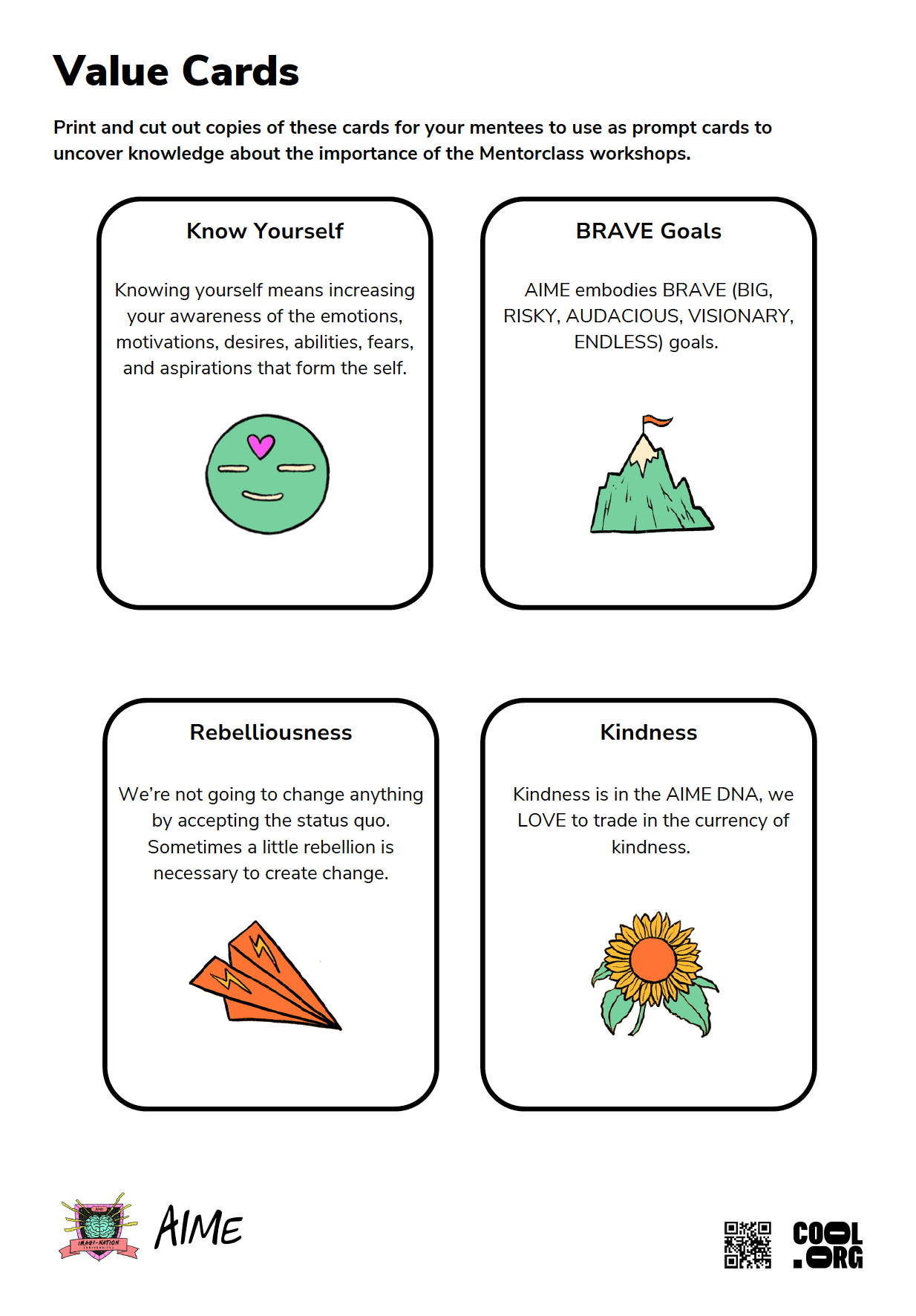Learning intentions:
Students will...
- connect with local knowledge holders to understand the significance of trees
- understand the importance of custodianship.
Success criteria:
Students can...
- apply local knowledge to tree planting
- create a narrative story about the ecological role of a tree
- collaborate and connect with others.
